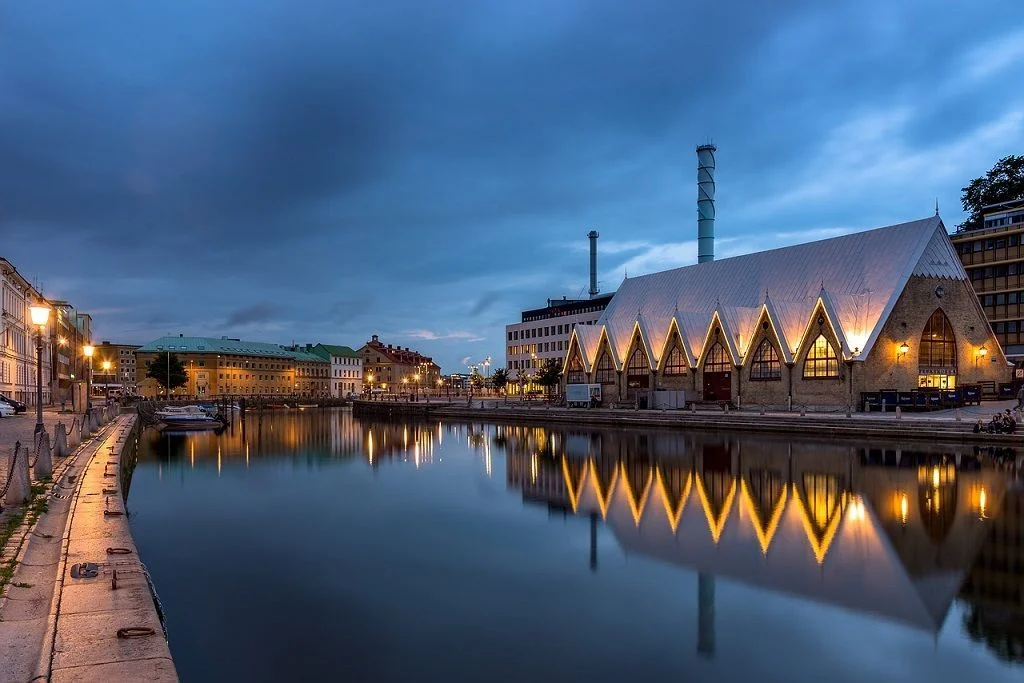InterNations, the world’s largest expat community with more than 3.5 million members, publishes its Expat City Ranking, which reveals the best and worst cities to live in 2021.
Overall, 66 cities make it into this year’s Expat City Ranking 2020.
Five of the top 10 cities are located on the Iberian Peninsula — with Valencia (1st), Alicante (2nd), and Lisbon (3rd) at the very top, followed by Málaga (6th) and Madrid (9th).
Survey respondents in Valencia — the best city for expats in 2020 — are particularly happy with local healthcare and the local climate.
The results at the other end of the ranking are geographically diverse, with Salmiya (66th), Rome (65th), and Seoul (64th) in the bottom 3. Expats in Salmiya — the worst-rated city worldwide — are not at all happy with their quality of life and the ease of getting settled in town.

The Expat City Ranking is based on the annual Expat Insider survey by InterNations, which is one of the most extensive surveys about living and working abroad, with more than 15,000 respondents in 2020. This year, 66 cities around the globe are analyzed in the survey, which offers in-depth
information about five areas of expat life: Quality of Urban Living, Getting Settled, Urban Work Life, Finance & Housing, and Local Cost of Living.
Together, the first four topics make up the Expat City Ranking, which reveals the best and worst cities for expats to live in. As the data was collected in March 2020, just before COVID-19 turned into a global pandemic, one question, however, remains: Will these cities still come out on top in a post-COVID world?
1. Valencia
Coming in 1st place out of 66 cities worldwide, Valencia is the best destination for expats, according to the Expat City Ranking 2020. The Spanish city is among the top 5 in all topical indices but one. It even ranks first worldwide in both the Quality of Urban Living and the Local Cost of Living Indices. In fact, 94% of expats rate the local cost of living positively (vs. 46% globally), and 91% consider healthcare easily available (vs. 74% globally). This places the city first in the Health & Environment subcategory. Expats are also very happy with the local climate and weather (2nd) and the leisure options (4th).
With more than four in five expats (82%) saying that housing in Valencia is affordable (vs. 41% globally), it also comes first for this factor. Overall, the Spanish city ranks 3rd in the Finance & Housing Index. A US American expat lists “the quality of life and the cost of living” as their favorite things about Valencia. Apparently, it is also easy to get settled in Valencia, which comes 4th in this index. More than four in five expats (84%) find it easy to get used to the local culture (vs. 61% globally), and 91% say that the local residents are generally friendly (vs. 68% globally).
The Urban Work Life Index (46th) is Valencia’s only sore point. In the Job & Career subcategory, it only ranks 62nd, with 46% of expats saying they are unhappy with their local career opportunities (vs. 34% globally). A French expat says that “finding employment has always been difficult” for them. Moreover, expats are not happy with the local economy: fewer than five in nine expats (54%) rate this aspect positively, which is nine percentage points below the global average (63%).
2. Alicante
Placing 2nd out of 66 destinations, Alicante is one of the best cities worldwide for expats, beaten only by neighboring Valencia (1st). The city ranks among the global top 3 in the Finance & Housing (2nd), the Local Cost of Living (2nd), and the Getting Settled (1st) Indices. In fact, 83% of expats feel at home there (vs. 64% globally), and 68% find it easy to make friends in Alicante (vs. 47% globally). A British expat appreciates the “easy way of life and the friendliness of people around me”. In terms of finance,
81% of expats are satisfied with their financial situation (vs. 61% globally). Additionally, more than two in three survey respondents (68%) say that housing in Alicante is affordable (vs. 41% globally), and 82% rate the cost of living in general positively (vs. 46% globally).
Similar to Valencia, Alicante shows a comparably weak performance in the Urban Work Life Index (39th). For example, 44% of expats rate their local career opportunities negatively (vs. 34% globally), putting the city into the bottom 10 worldwide for this factor (57th). In the Quality of Urban Living Index (19th), the city also receives lower results, which is partly due to public transportation (46th). On the other hand, Alicante receives great results for the availability of healthcare (89% satisfied vs. 74% globally), as well as the local climate and weather (97% satisfied vs. 64% globally).
3. Lisbon
Coming in 3rd place out of 66 cities in the Expat City Ranking, Lisbon performs well across the board. It does especially well in the Getting Settled Index (3rd), and 82% of expats feel at home in the city (vs. 64% globally). Another 79% are happy with their social life there (vs. 59% globally), placing the city 3rd worldwide for this factor as well. The Quality of Urban Living Index (4th) showcases how much expats like Lisbon, with the Portuguese capital coming 5th in the Leisure & Climate subcategory. In fact, 89% of expats are satisfied with the local leisure options (vs. 71% globally). A Brazilian expat likes to spend her leisure time “on the beach in the sun”. Moreover, 96% of expats are happy with Lisbon’s weather and climate (vs. 64% globally), and 56% even very much so (vs. 26% globally). A Canadian expat likes the “good weather and the safe environment”. Nearly all expats in Lisbon (99%) feel the same way about their personal safety (vs. 82% globally).
While Lisbon also ranks a good 6th place in the Local Cost of Living Index, with 64% of expats being satisfied with this aspect (vs. 46% globally), it does not perform as well in the Finance & Housing Index (27th). Nearly three in eight expats (37%) find it difficult to find housing in Lisbon (vs. 27%
globally). Lastly, they city gets mixed results in the Urban Work Life Index (23rd): Expats are very happy with their jobs in general (79% happy vs. 65% globally) and their personal work-life balance (83% happy vs. 64% globally). But they are unhappy with the local career opportunities (37% unhappy
vs. 34% globally) and the state of the local economy (19% unhappy vs. 18% globally).
See the last year’s rankings here
For more information visit InterNations













